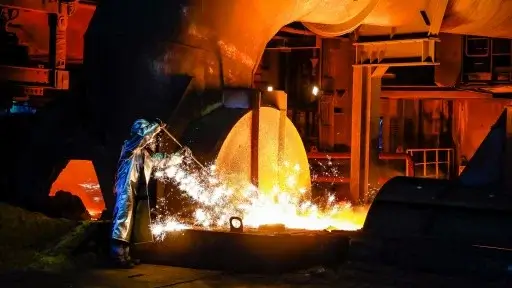Stahl-Holding-Saar, the German parent company of steel mills Dillinger and Saarstahl, is facing "the toughest time" in the company's history, driven by a growing scrap shortage and expected rising production costs, CEO-elect Stefan Rauber said on May 26. He will take over as CEO from Karl-Ulrich Kohler on July 7.
Responding to a call to announce a change in the leadership of the supervisory board, the company said the energy transition and shift to less carbon-intensive steel will be an unprecedented 10-year challenge.
When asked by S&P Global Commodity Insights if the company expects a scrap shortage as more European steel mills shift to more intensive production using scrap metal in electric arc furnaces, Rauber said he is already facing material and scrap shortages. , and the shortage will be even more intense in the future.
Asked if he also expects a shortage of green or low carbon steel, he said the market is very small in terms of tonnage.
The company is still awaiting funds from the government to start implementing the technical changes they have planned to reduce carbon emissions from steel production, at an estimated cost of 3.5 billion euros ($3.8 billion).Plans include commissioning a direct reduced iron plant, shutting down one blast furnace and two new electric arc furnaces by 2030, and commissioning a third EAF by 2045.
Salzgitter, another German manufacturer steel, received 1 billion euros from the government in April for the production of low CO2 steel.
Rauber is optimistic that Dillinger and Saarstahl will receive funding, despite an open letter from IG Metall published this week that that Germany's largest steelmaker Thyssenkrupp may face a cut in DRI plant funding.
The current market for crude steel is small on growth
While the spot market for carbon steel remains small, there are European mills and test proposals currently require a surcharge of up to €300-€350/t on certified hot rolled coil, but buyer-side sources report acceptable levels of €100/t. Mountain
Platts, part of S&P Global Commodity Insights, valued hot-rolled coil carbon at €100 per tonne on May 25 for material with a CO2 content of no more than 2.1 million tons.
Outgoing CEO Kohler said that long products mill Saarstahl and sheet metal producer Dillinger will together offer 3.5 million tons of crude steel from 2027 with a goal of reaching that volume by 2030.
It was expected to be produced about 1.6-1.7 million tons of long products per year, while thick plates should be produced at the level of 1.8-1.9 million tons per year.




